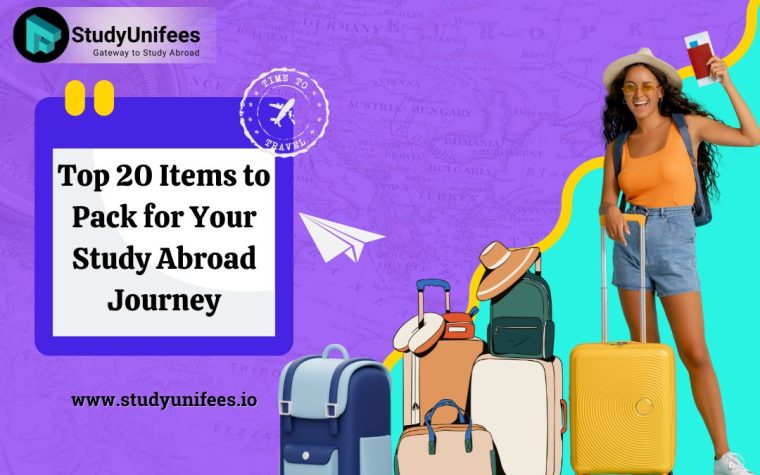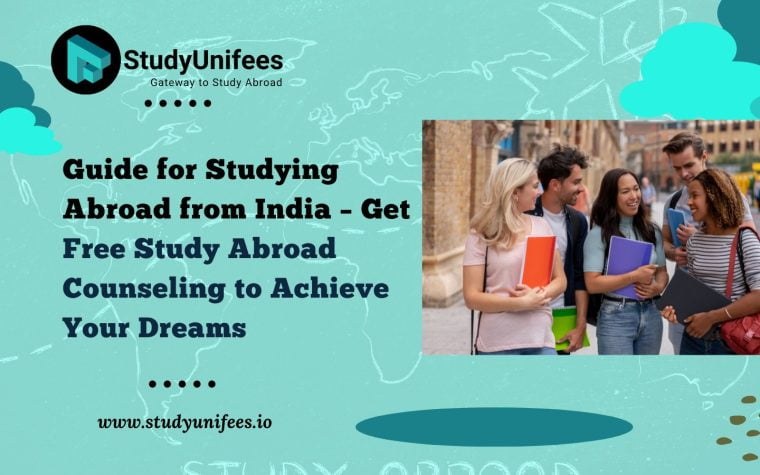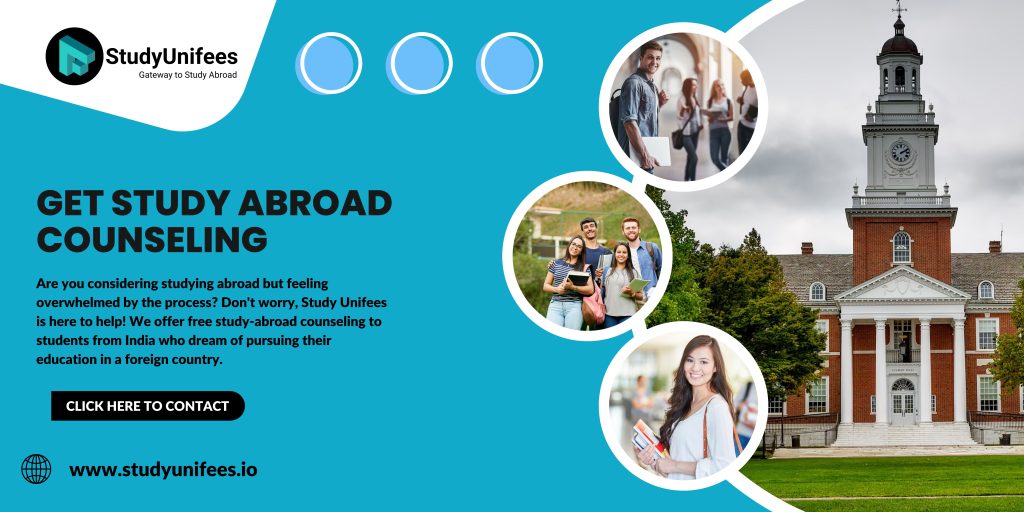Moving to study abroad is an exciting adventure, but it requires thorough preparation, especially for Indian students. To ensure a smooth transition and a comfortable stay, it’s crucial to pack wisely. Here are 20 essential items that Indian students must carry when they move abroad for their studies, each explained in detail to help you understand their importance.
- Passport and Important Documents
Your passport is the most critical document when you study abroad. Along with your passport, carry copies of your visa, admission letter, identification proof, financial documents, and any other essential paperwork. These documents are necessary for your travel, university registration, and various administrative processes. Keep these documents in a safe and accessible place. - Health Insurance and Medical Records
Health insurance is mandatory for international students in most countries. Ensure you have a comprehensive health insurance plan that covers you during your stay when you study abroad. Carry your medical records, including vaccination certificates, prescriptions, and a summary of your medical history. These documents are vital for seeking medical help and ensuring continuity of care. - Local Currency and Forex Card
Having local currency on hand is essential for immediate expenses upon arrival, such as transportation, food, and initial accommodation. A forex card is also beneficial as it allows you to carry multiple currencies securely and is widely accepted. It provides a convenient way to manage your finances while you study abroad. - Electronics and Gadgets
Carry essential electronics such as your laptop, smartphone, and chargers. These gadgets are crucial for your studies, communication, and daily life. Ensure your laptop is updated with necessary software and academic tools. Also, consider carrying a universal adapter to ensure your devices can be charged in the country you are moving to when you study abroad. - Academic Supplies
Pack your academic supplies, including notebooks, pens, calculators, and any specialized tools required for your course. While you can purchase these items abroad, having them ready can help you start your studies without any delays. Additionally, carry reference books and any study material you think will be useful when you study abroad. - Clothing and Footwear
Pack clothing suitable for the climate of your destination. Include formal attire for university events, casual wear for daily use, and traditional clothes for cultural events. Don’t forget to pack comfortable footwear, including walking shoes, as you will likely explore your new city. Layering clothes is practical for adapting to changing weather conditions when you study abroad. - Toiletries and Personal Care Items
While toiletries are available abroad, it’s advisable to carry an initial supply of your preferred products. Pack essentials like shampoo, conditioner, soap, toothbrush, toothpaste, and any specific skincare products you use. These items ensure you maintain your hygiene routine without any disruptions when you first arrive. - Bedding and Linens
Carrying bedding and linens can make your transition more comfortable. Pack a set of bed sheets, pillowcases, and a lightweight blanket. These items can be comforting and familiar, helping you settle into your new environment more quickly. Some universities provide these, but having your own can be a lifesaver if you arrive late at night. - Kitchen Essentials
Basic kitchen essentials like a small pressure cooker, a set of utensils, and a few spices can be incredibly useful. Indian students often miss home-cooked food, and these items will help you prepare familiar meals. Additionally, having basic cooking skills and ingredients can save money and ensure you eat healthily. - Emergency Contact Information
Carry a list of emergency contact information, including family members, friends, university contacts, and the local embassy. This list is crucial in case of emergencies, allowing you to quickly reach out for help. Keep both a digital and a physical copy in an easily accessible place. - Adapters and Converters
Different countries have different types of power outlets. Carrying a universal adapter and voltage converter ensures you can use your electronic devices without any issues. This is particularly important for your laptop and phone, which are essential for your studies and communication. - Snacks and Comfort Foods
Pack some non-perishable snacks and comfort foods from home. Familiar foods can provide comfort and help ease homesickness in the initial days. Items like ready-to-eat meals, instant noodles, and snacks can also be handy when you are settling in and haven’t yet familiarized yourself with local grocery stores. - Cultural Items
Bringing a few cultural items like traditional clothes, small artifacts, or decorations can help make your new place feel like home. These items also allow you to share your culture with new friends and celebrate festivals. They can be great conversation starters and help you stay connected to your roots. - First-Aid Kit
A basic first-aid kit with essentials like band-aids, antiseptic cream, pain relievers, and any specific medications you require is important. This kit ensures you are prepared for minor injuries or health issues without needing to visit a pharmacy immediately. Customize the kit based on your health needs. - Bank Account Information
Carry details of your bank accounts, credit cards, and any financial documents. Setting up a local bank account in your destination country is advisable for managing finances efficiently. Having your financial information handy will make this process smoother and ensure you can access funds without any problems. - Portable Hard Drive and USB Stick
A portable hard drive and USB stick are essential for backing up your important documents, academic work, and personal files. These tools ensure you have extra storage space and can transfer files easily between devices. Regular backups protect your data from unexpected loss or technical issues. - Weather-Appropriate Gear
Depending on the climate of your destination, pack weather-appropriate gear such as umbrellas, raincoats, and winter wear. If you are moving to a place with harsh winters, invest in a good quality winter coat, gloves, and thermal wear. Being prepared for the weather will make your stay more comfortable. - Travel Guide and Maps
A travel guide and maps of your destination city can be incredibly useful when you first arrive. These tools help you navigate the city, find essential services, and explore local attractions. While digital maps are convenient, having a physical map can be a reliable backup. - Personal Identification
In addition to your passport, carry a few additional forms of personal identification, such as a driver’s license, student ID, or any other official ID. These documents are useful for various administrative tasks and proving your identity when required. Keep them in a secure and accessible place. - Positive Attitude and Open Mind
While not a physical item, carrying a positive attitude and an open mind is essential when you study abroad. Be prepared to embrace new experiences, cultures, and challenges. A positive outlook will help you adapt quickly, make new friends, and fully enjoy your study abroad experience.
Moving to study abroad is an exciting and transformative experience. By carefully planning and packing these essential items, Indian students can ensure a smooth transition and a successful stay in their new country. Each item listed here serves a specific purpose, helping you stay prepared, comfortable, and focused on your studies. Remember, thorough preparation is key to making the most of your study abroad adventure.





